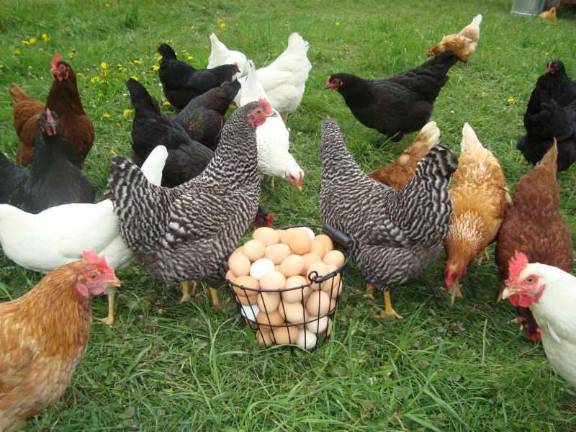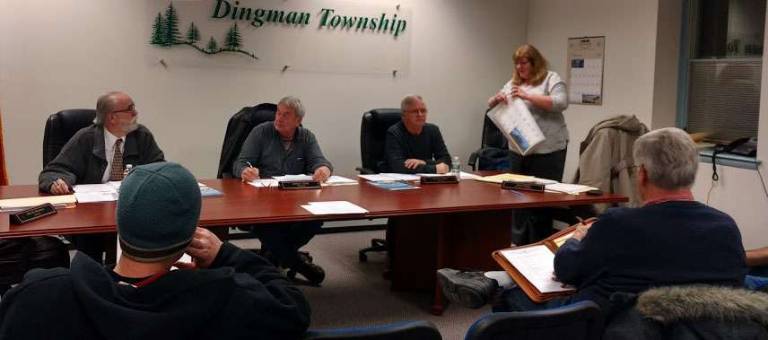Backyard chickens law takes shape


By Anya Tikka
DINGMAN TOWNSHIP — A resident's proposal to allow backyard chickens was tabled once more, as Dingman Township supervisors continued to hammer out details Tuesday night.
No one attended the public hearing, perhaps because of the rainy and icy weather that also delayed the township solicitor, John Klemeyer.
Last fall, Joli Taryla asked for a zoning change so that her family and others in Dingman’s Neighborhood Commercial Zone could keep chickens for domestic use. She said it would offer a healthy and cost-effective option to store-bought eggs.
“People want the freedom to feed their families without pesticides or hormones,” she had told supervisors.
The supervisors were sympathetic to Taryla, but had to figure out how many chickens should be allowed, or whether to permit other kinds of animals. They also raised questions about who will determine whether chickens are kept in healthy conditions.
They acknowledged that the issue had come up many times before, and wanted to head off the commercial production of chickens and eggs and health hazards.
The township planning board responded to the supervisors with a recommendation that the keeping of chickens be allowed, while also questioning why it was not already permitted. Klemeyer said backyard chickens are allowed in larger properties in the township.
Resident Walter Martin wrote a letter objecting to what he says will be an increase in noise, weeds, and predators, among other concerns.
The supervisors said Tuesday they didn't know what the impact would be. Supervisors' Chair Tom Mincer noted that he doesn't live in the same zone.
He said he didn't like the idea of placing coops in front yards.
“They should be restricted to confined area," Mincer said of the hens.
Board members decided to add this as a stipulation to the proposed zoning change, and to advertise the change.
Highlights of draft amendmentHighlights of the proposed zoning amendment are as follows:
Up to six hens will be allowed on a one-acre minimum lot.
No other animals, except hens, will be allowed in the zone. Roosters are explicitly not allowed. Household pets such as dogs, cats, birds, and hamsters are still allowed but no "cows, steers, goats, sheep, swine, poultry and furbearing animals."
There will be penalties if the rules are broken, with details yet to be decided.
Violations will be investigated. If a public hazard or nuisance is found, the owner “shall be ordered to remove and dispose of the accumulated feces in any approved manner within 48 hours.”
No coops will be allowed in front yards or within 50 yards of a public road.
Conditions must be “clean, dry and odor free, kept in a neat and sanitary condition."
To prevent rats and other rodents from invading, “All feed, water and other items associated with the keeping of chickens shall be protected in a way that prevents infestation by rats, mice or other rodents or vectors.”
Composting of chicken feces is not permitted within “50 feet of any water well, stream, or pond, nor within 100 feet of any established residence not on the subject property.”
Special regulations will be in place for the disposal of feces, which cannot be use as fertilizer.
The pens must be protected from the elements and wild animals, and be made from adequate, sturdy wire fencing.
Chickens cannot be let lose to roam the neighborhood.